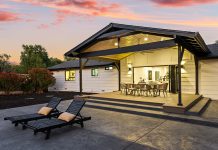In a few weeks all of us will mark a full year of living in this COVID-19 time of a pandemic, sheltering in place and worrying about what terrible things like more wildfires, a positive virus test or loss of a job might happen next. What has this year of disease, tension, uncertainty and new daily living patterns done to us? Are we all becoming Zoombies?
Unfortunately, one thing that living a full year with this coronavirus has done is it has statistically shortened everyone’s life expectancy. According to the National Center for Health Statistics, most U.S. residents had a life expectancy of 78.7 years but COVID-19 has decreased that number to 77.48 years, falling 1.13 years for whites, 2.1 years for Blacks and 3.05 years for Latinos.
We are not only sheltering in place, we are also aging in place. None of us age at the same pace. Some of us feel like we are getting older faster and some of us swear we are feeling younger or suspended in time. All of us had a birthday sometime over the past 12 months. And, just about everyone had to settle for a “virtual” birthday party when no one dared blow out any candles.
There are some very curious paradoxes about getting old during a virus-caused pandemic. While the great majority of COVID-19 deaths are among people over the age of 65, this same age range of more elderly appear to have better coping skills and less anxiety than their younger counter parts. Why is that?
Studies and COVID-19 interviews prove that getting older does come with increased wisdom. Coping is not so much about having special skills to deal with anxieties or health risks as it is about just avoiding a problem or situation in the first place.
Unrelated to COVID-19, there are classical studies about what age most people find the most happiness and satisfaction with their lives. Levels of happiness and positive self-reflections tend to rise and dip through our various decades of work, play, breathing and nutriment during our time on this planet. Most studies agree that people’s satisfaction with their lives peaks at age 69, so it must be all downhill from there. Yet, the oldest among us continue to gain in vocabulary skills, self-confidence and increased satisfaction in more of life’s smaller moments and pleasures. How can this be? We think it is because of the self-foolery we do to ourselves by claiming the older we get, the better we were. (Weren’t all of us the real all-stars on our sports teams, the brightest bulb of the bunch or the most popular at that big social gathering? Of course we were.)
Our happiness with our lives also peaks at age 23 for some reason, according to other studies. Our ability to remember names peaks at age 22. We have the most friends by age 24 and we have the strongest muscles by age 25 while our bones become the strongest by age 30.
Congratulations to everyone who has survived the mid-life ages of 45-55, considered the most miserable for many of us. Why? It seems like it has to do with realizing you can’t tell a groove from a rut anymore, your love life is now obviously what it will always be, your income power is plateauing and your own children have figured you out while your parents have resigned themselves to be grateful you didn’t turn out any worse than you are. Or so we feel until we turn 60 and begin to claim our elder statesmanship powers.
One thing’s for sure. The views about aging and well-being have changed a lot over recent decades. Getting old is no longer about growing more frail, lonely or depressed. Older people these days are among our most active citizens, volunteers and leaders. Except for physical illness, getting older is getting better, considering the alternatives.









